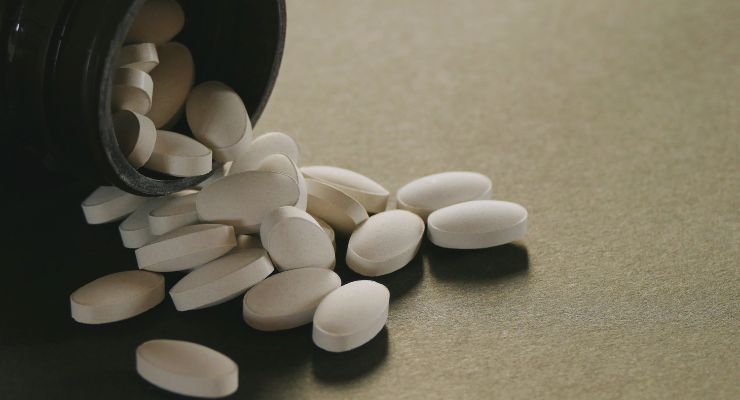02.26.24
A new research letter by Dr. Pieter Cohen, MD, et al. found that a number of illegal products purporting to be dietary supplements which contained the prescription drug galantamine had wildly inaccurate dosages compared to claims.
Galantamine, a compound approved as a drug to treat Alzheimer’s disease, was approved by the U.S. Food and Drug Administration as a drug in 2001, and, as a result, products containing the galantamine which haven’t been approved by the FDA are considered adulterated drugs.
In the study by Cohen et al., researchers tested ten different brands of products purporting to be dietary supplements which contained galantamine, at claimed dosages of four, six, eight, and 12 mg. They found that the quantity of galantamine ranged from less than 2% to more than 110% of the labeled quantity.
Unsurprisingly, when the researchers tested prescription drugs which contained galantamine, those products fared quite well in comparison, ranging from 97.5% to 104.2% of the labeled dosage. Additionally, about a third of the illegal products marketed as supplements were contaminated with B cereus ss, which could cause further adverse effects.
“Galantamine, a plant alkaloid with anticholinergic effects, is available in the U.S. as either a dietary supplement or as a prescription medication,” the authors wrote. “As a prescription medication, galantamine is approved by the U.S. Food and Drug Administration for the treatment of mild to moderate Alzheimer dementia. However, galantamine is ineffective in treating mild cognitive impairment or preventing Alzheimer dementia, but, when sold as a dietary supplement, the drug is marketed for a variety of cognitive conditions including memory enhancement.”
All of the adulterated products the researchers tested were purchased on Amazon, which listed galantamine as an ingredient, and included a Supplement Facts panel.
“The sale of inaccurately labeled galantamine supplements promoted for nonspecific memory and other cognitive problems is concerning given the lack of proven efficacy, potential drug-drug interactions, and adverse effects, including nausea, vomiting, dizziness, brachycardia, and syncope,” the authors wrote. “The laws regulating dietary supplements should be reformed such that the FDA has enforcement mechanisms to ensure that dietary supplement labels accurately reflect their contents. Meanwhile, clinicians should query patients with memory concerns about the use of dietary supplements and advise patients not to use galantamine supplements.”
The Council for Responsible Nutrition (CRN) issued a statement in response to the research letter, calling on FDA and retailers to remove adulterated galantamine products from shelves as soon as possible.
“Products containing galantamine are not legitimate dietary supplements and, if offered as such, are illegally marketed. The Council for Responsible Nutrition urges FDA and any retailers who are selling these fake supplements to immediately remove them from the market to protect consumers,” the association stated.
Galantamine, a compound approved as a drug to treat Alzheimer’s disease, was approved by the U.S. Food and Drug Administration as a drug in 2001, and, as a result, products containing the galantamine which haven’t been approved by the FDA are considered adulterated drugs.
In the study by Cohen et al., researchers tested ten different brands of products purporting to be dietary supplements which contained galantamine, at claimed dosages of four, six, eight, and 12 mg. They found that the quantity of galantamine ranged from less than 2% to more than 110% of the labeled quantity.
Unsurprisingly, when the researchers tested prescription drugs which contained galantamine, those products fared quite well in comparison, ranging from 97.5% to 104.2% of the labeled dosage. Additionally, about a third of the illegal products marketed as supplements were contaminated with B cereus ss, which could cause further adverse effects.
“Galantamine, a plant alkaloid with anticholinergic effects, is available in the U.S. as either a dietary supplement or as a prescription medication,” the authors wrote. “As a prescription medication, galantamine is approved by the U.S. Food and Drug Administration for the treatment of mild to moderate Alzheimer dementia. However, galantamine is ineffective in treating mild cognitive impairment or preventing Alzheimer dementia, but, when sold as a dietary supplement, the drug is marketed for a variety of cognitive conditions including memory enhancement.”
All of the adulterated products the researchers tested were purchased on Amazon, which listed galantamine as an ingredient, and included a Supplement Facts panel.
“The sale of inaccurately labeled galantamine supplements promoted for nonspecific memory and other cognitive problems is concerning given the lack of proven efficacy, potential drug-drug interactions, and adverse effects, including nausea, vomiting, dizziness, brachycardia, and syncope,” the authors wrote. “The laws regulating dietary supplements should be reformed such that the FDA has enforcement mechanisms to ensure that dietary supplement labels accurately reflect their contents. Meanwhile, clinicians should query patients with memory concerns about the use of dietary supplements and advise patients not to use galantamine supplements.”
The Council for Responsible Nutrition (CRN) issued a statement in response to the research letter, calling on FDA and retailers to remove adulterated galantamine products from shelves as soon as possible.
“Products containing galantamine are not legitimate dietary supplements and, if offered as such, are illegally marketed. The Council for Responsible Nutrition urges FDA and any retailers who are selling these fake supplements to immediately remove them from the market to protect consumers,” the association stated.




























